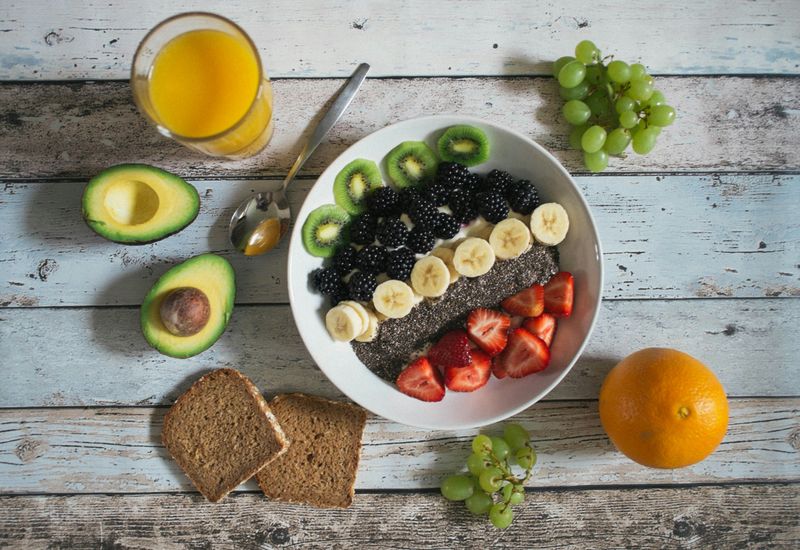Does your plate lack color and vibrancy?

If so, you may be undernourished because you're not getting enough micronutrients.
Discover how eating a rainbow of colors can support your health!
Did you know?
A look at micronutrients and macronutrients
Micronutrients
Micronutrients are vitamins and minerals. You need them in small amounts. Their overall impact on the body is critical: they help your body digest food and produce hormones, and they help your brain function.
Micronutrient deficiencies — which happen when you don't get enough micronutrients — can cause life-threatening conditions!

Macronutrients
Macronutrients provide energy to your body. You need them in large amounts. They're made up of proteins, carbohydrates, and fats.
Together with micronutrients, they help your body function properly. Micronutrients help your body digest macronutrients.
Did you know?
Where can I find micronutrients?

You can find micronutrients in food or dietary supplements. The four main kinds of micronutrients that you need are:
Water-soluble vitamins: found in citrus fruits, bell peppers, whole grains, eggs, dark leafy greens, fish, and lean meats.
Fat-soluble vitamins: found in leafy greens, soybeans, almonds, sweet potatoes, and milk.
Macrominerals: found in dairy products, black beans, lentils, bananas, and fish.
Trace minerals: found in oysters, spinach, cashews, and peanuts.
5 tips to add micronutrient rich foods to your day

Tip #1: Eat three servings of greens a day. A serving is one cup (250ml or 80z). Try adding spinach to your quiche or add kale to your smoothie.

Tip #2: Eat two servings of fruit a day. A serving is one cup. Try topping your salad with strawberries or add blueberries to your yogurt.

Tip #3: Snack on seeds and nuts. Trade your chips and cookies in for a handful of almonds, macadamia, or sunflower seeds.

Tip #4: Have more oatmeal. Try overnight oats for a coinvent and fulfilling breakfast or even dessert. Fun recipe ideas are maple chai, chocolate peanut butter, and maple pancakes.

Tip #5: Try legumes. Soups, stews, and chili are all meals where you can add lentils and other legumes for a vitamin-packed meal.
Quiz
Tyler typically eats burgers, pizza, and wings. What nutrients are missing from his plate?
Subscribe for more quick bites of learning delivered to your inbox.
Unsubscribe anytime. No spam. 🙂
Take Action
Now that you know about the importance of micronutrients, try to fit some into your eating plan each day. Your body will thank you!
 Photo by Jannis Brandt on Unsplash
Photo by Jannis Brandt on UnsplashTake your nutrition further with these Bytes:
Your feedback matters to us.
This Byte helped me better understand the topic.
